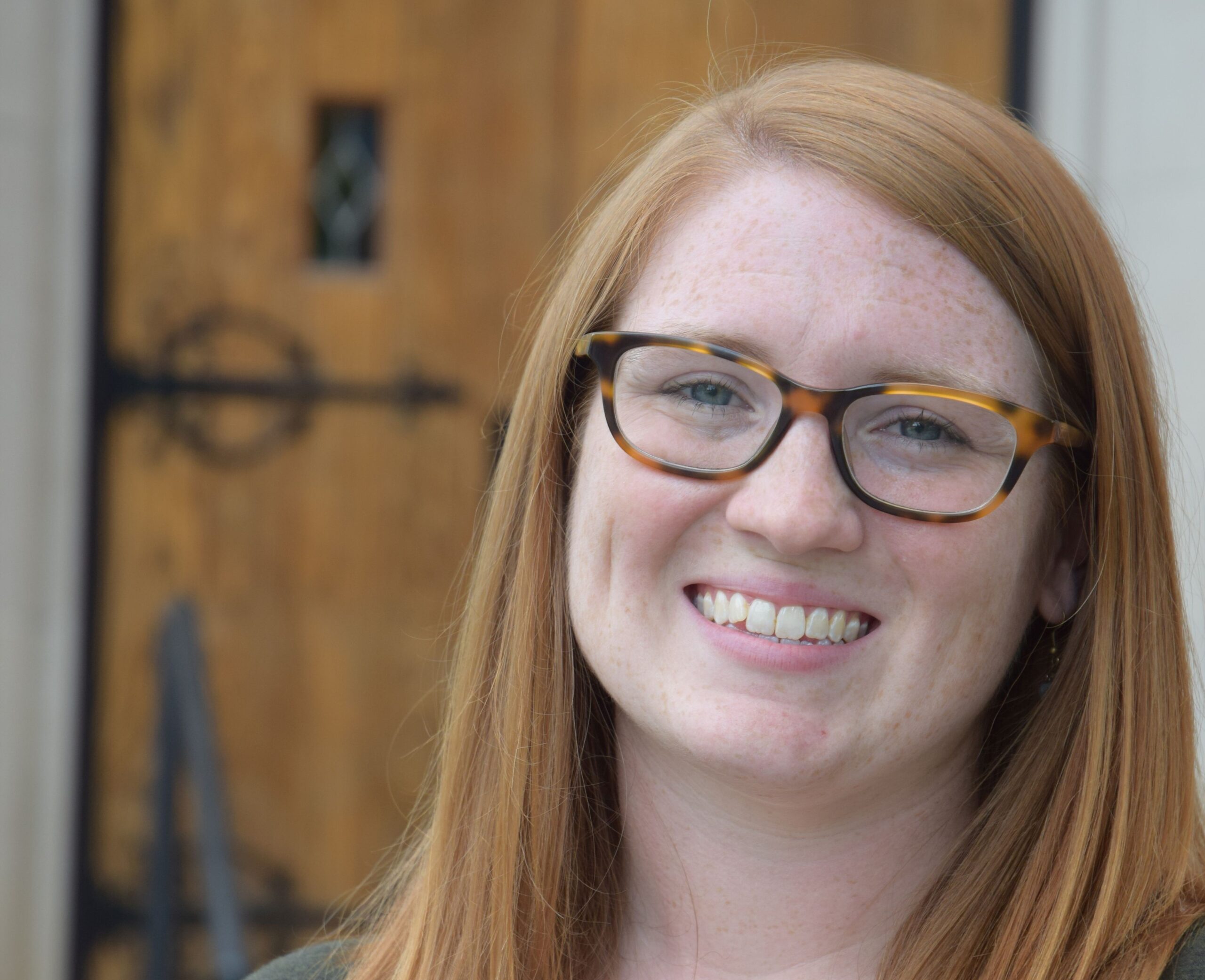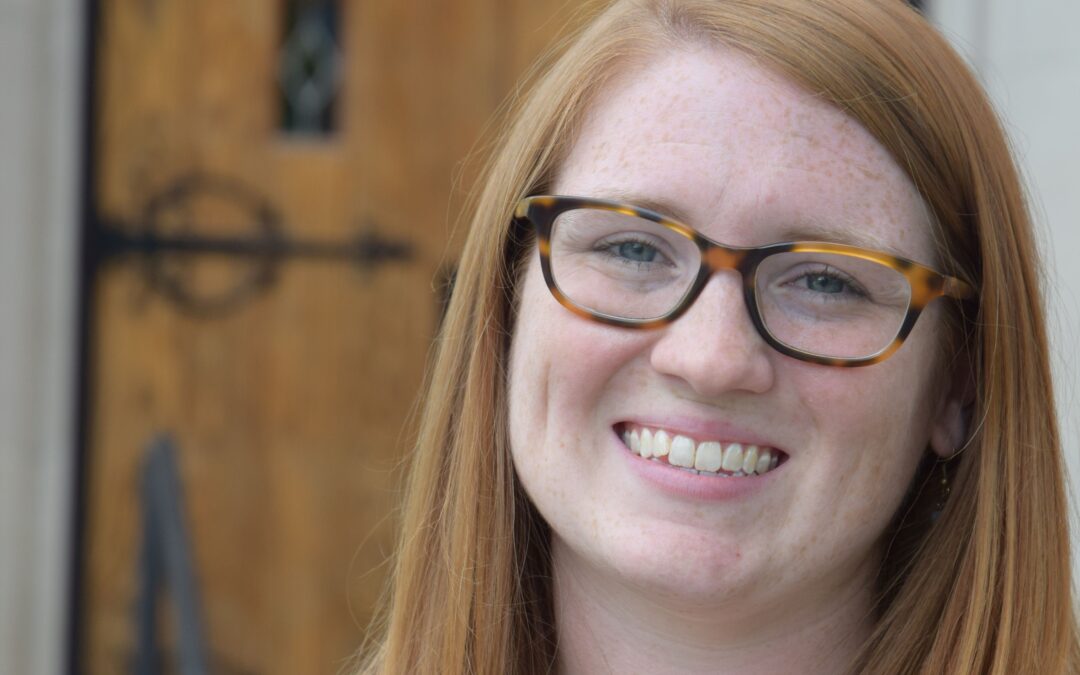 “Live in Community – Uplift Those in Need”
“Live in Community – Uplift Those in Need”
Rev. Emily Wilmesherr
February 20, 2022
Decatur Presbyterina Church
The Lord said to Moses, “The daughters of Zelophehad are right; let them possess their father’s land.” A simple declaration but one that holds more weight when we look at the context of the time. Ancient Israel had a patrilineal inheritance system which means that land was passed from father to son and so on only transferring land through the men. At the same time it was really important in Ancient Israel for land ownership to stay within the original tribe, the purpose being to make sure that no one tribe possessed too much land. These two customs were in conflict when the daughters presented their situation. What happens if a father does not have sons?
This was the question before Moses and the community. The daughters of Zelophehad didn’t feel that it was right for their father’s land to be given away simply because he did not have any sons. They made a bold and courageous choice to bring their case before Moses, a situation that had no precedent. While at first glance, we might read this is a move towards more equitable rights for women in society, however, if we dive deeper and continue reading we hear more of the daughters’ story later on in the book of Number but this time without them present. The men have gathered and decide that the daughters can possess a portion of their father’s inheritance however, when they marry, and they must marry within the tribe, they land will go to their husband. The daughters were advocating for their father’s rights and the rights of their family rather than their own. While we could start talking about the critical issue of women’s rights in biblical and current times, we will save that for another day. I want us to instead focus on the fact that the communities in both Acts and Numbers faced new needs to which their customs and laws did not provide a clear response. Small steps were made which showed that communities can change to create more just practices in their life together.
Drew and I have a 10 year old niece named Liesl. Recently she was at a sleepover with several of her friends. As the night progressed one of her friends became anxious and homesick. All the other girls decided that they would get out a Bible and take turns reading scripture to her to bring her comfort. I am certain this was not on the original itinerary for the evening: a little nail painting, karaoke, movie watching, snacks galore and scripture reading. Speaking as someone who was once a 10 year old at a sleepover, comforting a friend by listening to God’s Word was not a typical activity. What is amazing to me is that the girls put aside what they had planned or what they wanted to do to make sure that everyone felt see and heard. When one was feeling uncomfortable and sad, they changed their plans in order to make sure all felt like they belonged.
Changing our plans, our ideas, and the way we have always done things is not easy, but is necessary at times in order to uplift those in need. Abby Norman, a Methodist minister and author of the book You Can Talk to God like That says that “change can feel scary but is a gift from the Holy Spirit, it’s active participation in your life. It’s growing out of things that no longer fit you and growing into bigger and better ways of being.” How are the systems we participant in and traditions that we hold harming others? How are the needs of other parts of the body being harmed or ignored? These are hard questions to answer honestly and even harder to practice responding to, but we can do hard things. We must do hard things so that there is not a needy person among us.
Bryan Stevenson a lawyer, social justice activist, and author of the book Just Mercy is very familiar with uplifting the needs of others. He has spent years challenging bias against the poor and minorities in the criminal justice system, especially children. He says this, “There is a strength, a power even, in understanding brokenness, because embracing our brokenness creates a need and desire for mercy, and perhaps a corresponding need to show mercy. When we experience mercy, we learn things that are hard to learn otherwise. We see things that we can’t otherwise see; we hear things we can’t otherwise hear. We begin to recognize the humanity that resides in each of us.”
It is hard enough to understand and embrace our own brokenness but I think what Stevenson is talking about here is empathy. When we embrace all the parts of our life that are broken and at the same time all the ways that God has shown up to shower us with love and mercy, we can express love and mercy to others. It seems that our society tends to label everyone, but then those labels begin to define us in ways that make us and others feel unworthy. These labels create division and make us feel like we are better or less than others, stronger or weaker, more or less intelligent and the comparisons go on and on. However, when we do this to ourselves and others it over shadows the most important part of our identity that never changes: we are and will always be a beloved child of God. This is a truth for all people and a truth I believe people need to hear. God desires for us to see the humanity and belovedness in all people. In order to do this, we must open our eyes to the needs in front of us, even and especially if we don’t understand them or if they do not seem to immediately impact us.
Act 4 paints a lovely picture of a community that saw each other as God’s beloved. This looked like being of one heart and soul and sharing possessions so that there was not a needy person among them. Luke is highlighting theological characteristics that are the ideal for any church or any age. When he talks of one heart and soul he is not talking about in a bureaucratic sense but all share in the same mission, purpose, and values. They were witnesses to the resurrection of Jesus which created in them a strong sense of unity that they wanted to share with the world. Our society places a high value on money and power. If we have enough money, we can do all that we need and want to do. However, there are still needy people among us. And our desire to hold tightly to what we have keeps others from having enough. In countries around the world that have far less financial resources, people share whatever they have with one another so that everyone’s basic needs are met. This text reminds us that we serve Jesus Christ not money and when our common mission is to love those in front of us, sometimes giving up money or other possessions to meet the needs of others, we are doing just that, living in service to Jesus.
When the daughters presented their case before Moses, he did not know what to do, so he went to God. As a society that is constantly growing and changing, there will always be new needs that arise that we do know how to handle. But we can always go to God for wisdom and direction. In the first five books of the Bible, God continually reminds the people they were slaves in Egypt, and God saved them. Therefore, they are to remember this and treat one another and foreigners with the same justice and mercy they were given. Time in God’s Word and God’s presence reminds us who we belong to and who we are called to be. It grounds us in truth and gives us courage to serve Jesus in our daily life.
The needs around us will often be more than we feel we can handle. Our reaction to this can to get defensive, deny the need’s existence, withdrawn or give up. But rather than seeing the problems as insurmountable or moral failures what if we recognize that we can change to meet the need that we are now aware of. As followers of Jesus Christ we have the influence and responsibility to uplift those in need. Communities of faith are strengthened when we lift up those in need together. We grow closer to one another, to God and we become more aware of the world outside our own experience. This happens through both acts of mercy and acts of justice. Acts of mercy meet immediate needs such as feeding those who are hungry. Acts of justice figuring out why people must go without food in the first place. The church is called to do both.
So where do we start? I’m wondering if we can begin by asking a few questions: What breaks your heart? What breaks God’s heart? What influence do you have to help? We do not have to meet all the needs of the world on our own. We live and work in a community with people who God created to do life together. To share our gifts to meet all the different needs that arise. Looking at the needs of the world through only our eyes can be very discouraging, but when we are reminded that the smallest act of kindness made within and for all the community, does bring about a difference, perhaps that the beloved community God intended for all moves closer into reality.
Thanks be to God. Amen.
Rev. Emily Wilmesherr
February 20, 2022
Decatur Presbyterian Church
Decatur, GA


